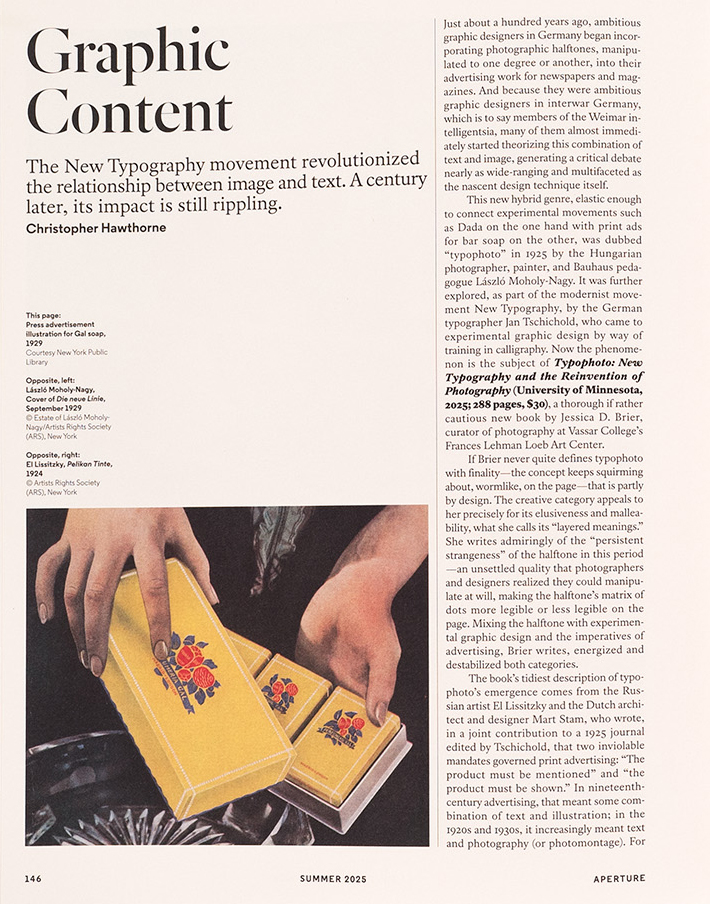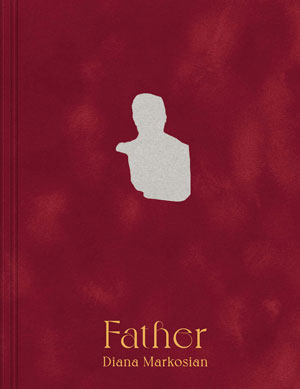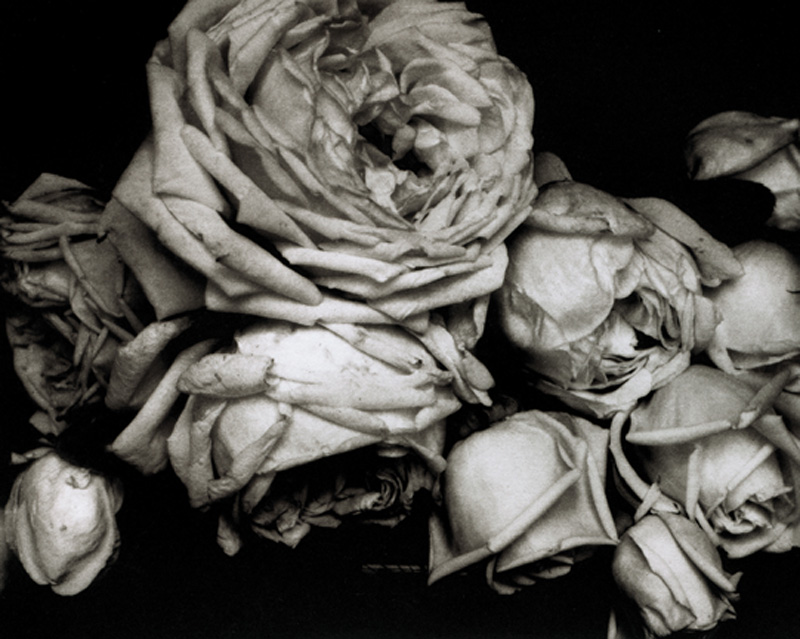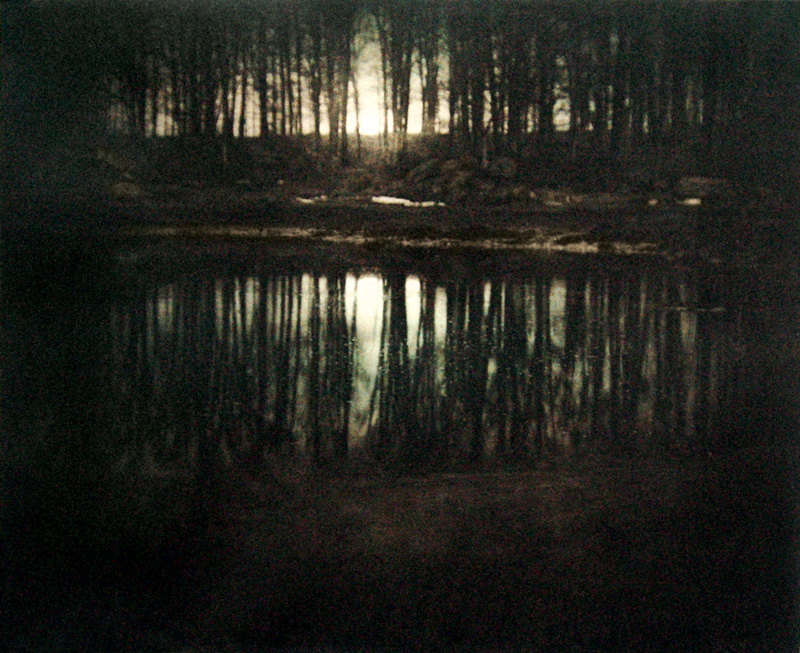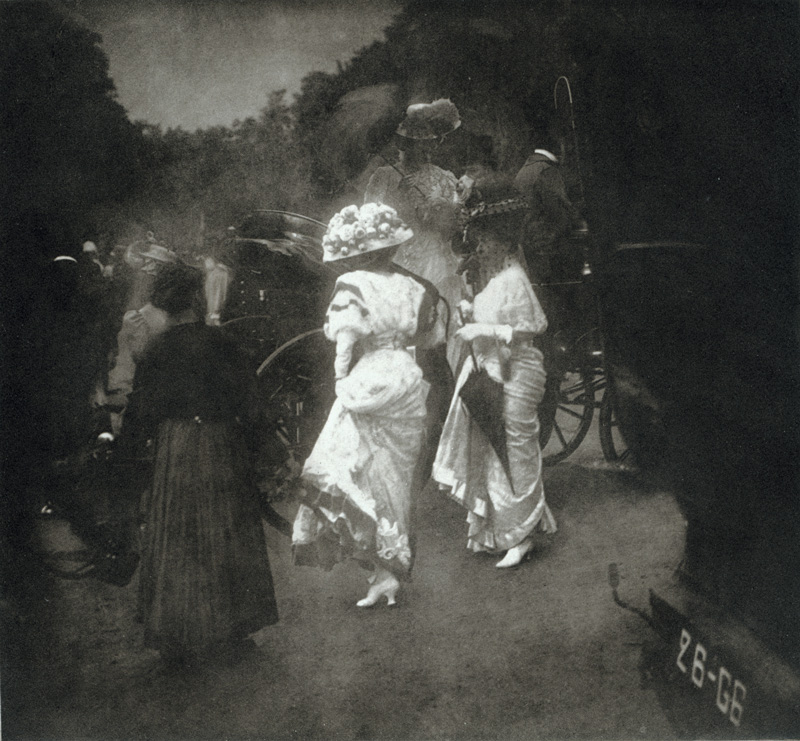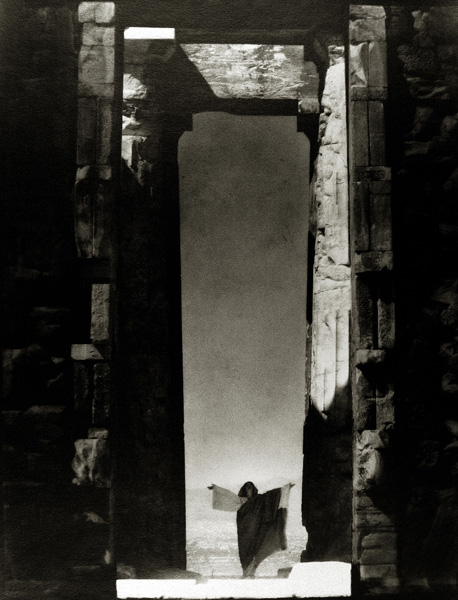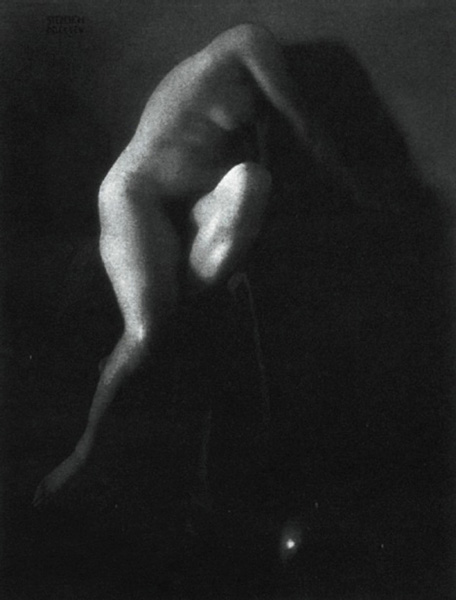Heavy Roses, Voulangis, France, 1914
by Edward Steichen
Out of stock
Get an alert when the product is in stock:
Hand-Pulled Dust-Grain Photogravure
Image Size: 8 x 10 inches
Paper Size: 20 x 16 inches
Edition of 500 + 1 AP
Edward Steichen (b. 1879, Bivange, Roeser, Luxembourg; d. 1973, Redding, Connecticut) is an immortal among photographers. He was one of the most prominent and influential figures of twentieth-century photography. His richest, most profound photographs were made between 1900 and 1927. It is from this period that Steichen selected his masterpieces and asked Aperture to publish his prints. During his long career, he worked in various styles in black-and-white and in color; his subjects ranged from portraits and landscapes to fashion and advertising to dance and sculpture. As a curator at the Museum of Modern Art for fifteen years, Steichen was responsible for many important exhibitions, including The Family of Man. He became chief photographer for Condé Nast Publications in 1923, regularly publishing in Vogue and Vanity Fair for the next fifteen years. His richest, most profound photographs were made between 1900 and 1927. It is the masterpieces from this period that Steichen asked Aperture to publish as hand-pulled photogravures. In 1961 Steichen was honored with a one-person show at MoMA. The Edward Steichen Photography Center was established at the museum in 1964. In 1967, he wrote, “Today, I am no longer concerned with photography as an art form. I believe it is potentially the best medium for explaining man to himself and to his fellow man.” Steichen died in West Redding, Connecticut, shortly before his ninety-fourth birthday.

